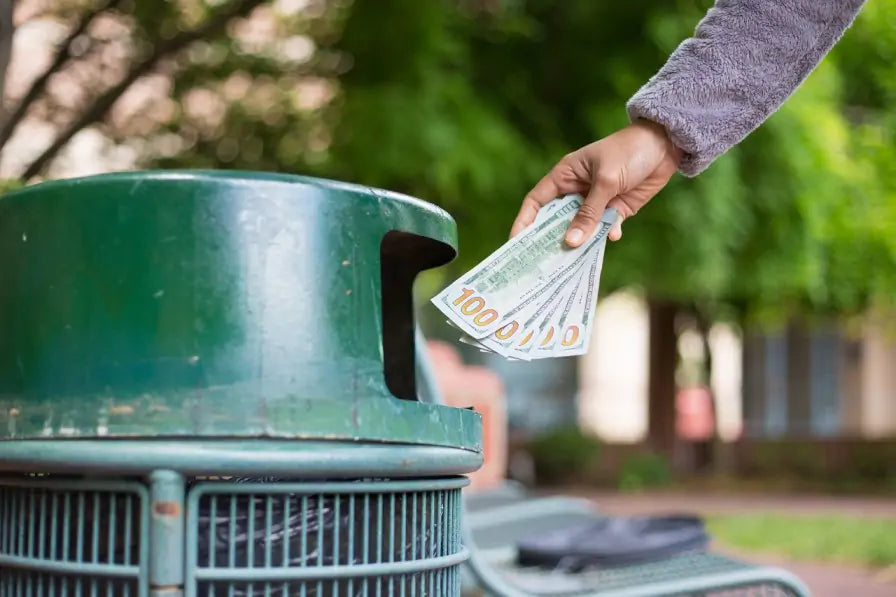OR
Express Checkout

The True Cost of Littering
The cost of keeping our streets clean is nearly £1 billion per year. Clearing up litter makes up a big chunk of this figure; £858 million to be exact. Britain’s ‘throwaway culture’ is being blamed for the huge clean-up bill.
The campaign group Keep Britain Tidy spends £10 million every year trying to encourage us to keep the streets clean, but there is now 500% more litter than there was in the 1960’s. It is estimated that 2 million pieces of litter are thrown onto the streets every year.
And it’s not just the direct cost of removing the litter that makes up this sobering figure, it’s the further social, environmental, and economic costs as well.
Litter is cited as a contributor to crime, as areas with high levels of litter tended to be areas with higher levels of crime.
A lot of litter is made up of materials that could have been reused or recycled, and if we even recycled half of the litter we throw away, this could be worth over £14 million to the economy.
Why litter is everyone’s business
But a report by Keep Britain Tidy showed that people are willing to pay to live in a cleaner area, so we obviously value living in a clean environment. So why has the amount of litter increased so much if we care about our environment?
Everyone has a right to live in a clean, litter free environment, and similarly, everyone has a part to play in reducing the amount of litter on our streets. What is required is a change in attitudes. Easier said than done, you might say, but in a time of austerity, should we be spending hundreds of millions of pounds on clearing up litter when we could be spending it on hospitals and schools?
What makes up most of the litter we throw away?
Chewing gum, fast food wrappers and cigarette butts are the usual suspects. Measures to combat this have been introduced, such as providing more bins and on the spot fines for littering.
Before you throw away litter, consider this...
What you can do